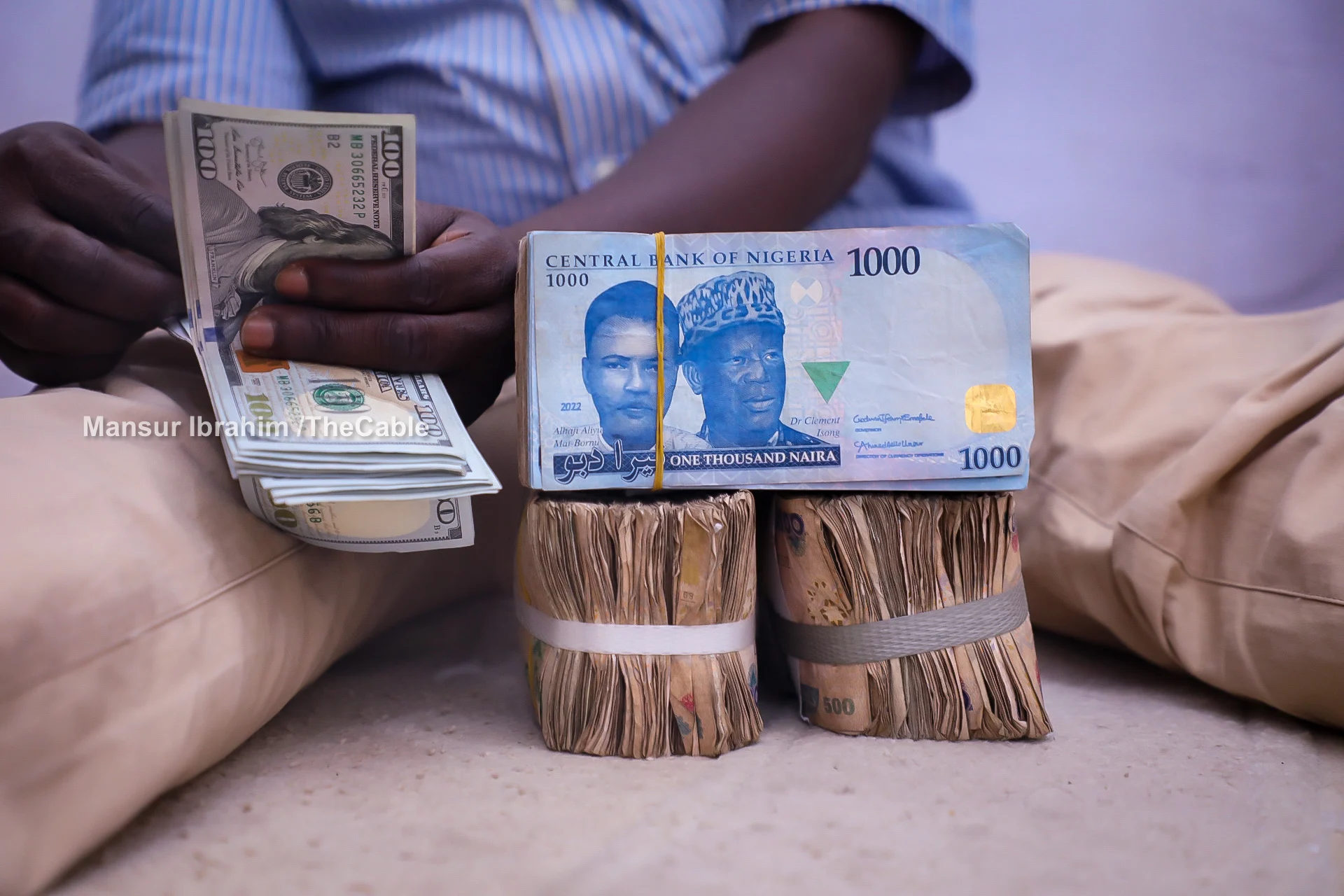The Nigerian naira demonstrated a mixed performance across various foreign exchange markets on Thursday, December 19, 2024, reflecting ongoing currency dynamics influenced by market pressures and fiscal policies.
At the official foreign exchange market, the naira appreciated against the US dollar, trading at N1,541.38/$1, a gain of N2.82 from Wednesday’s rate of N1,544.20/$1, according to data from FMDQ.
This modest recovery signals a slight easing in the dollar demand at the formal exchange window, a trend welcomed by traders and policymakers.
In the parallel (black) market, the naira saw a more pronounced gain, closing at N1,640/$1, a notable improvement of N10 from the previous day’s rate of N1,650/$1.
This marked gain in the informal market suggests improving liquidity conditions or reduced speculative pressure.
Despite these gains, the naira weakened significantly against other major currencies, underlining the challenges of a multi-currency exposure.
Against the British pound, the naira slipped by N20, trading at N2,180/£1 compared to N2,160/£1 on Wednesday. Similarly, the naira lost N60 against the euro, settling at ₦1,790/€1, down from the prior day’s rate of ₦1,730/€1. However, it held steady against the Canadian dollar at N1,280/CA$1.
Financial analysts attribute the naira’s mixed performance to ongoing structural issues in Nigeria’s foreign exchange market and global currency fluctuations.
READ ALSO: Naira shows mixed trends: Marginal dollar loss, gains elsewhere
“The naira’s appreciation against the dollar at the official and parallel markets can be tied to slight improvements in dollar supply, either from export earnings or interventions by the Central Bank of Nigeria (CBN),” noted Dr. Funmi Adewale, a financial economist.
“However, the losses against the euro and pound reflect the relative strength of these currencies globally and Nigeria’s dependence on imports priced in these denominations.”
Currency traders have observed reduced speculative activity in recent weeks, particularly in the black market.
“The N10 gain in the parallel market might signal declining panic-buying by importers or speculative hoarding of dollars,” explained currency dealer Ibrahim Musa. “Still, it doesn’t necessarily indicate a long-term trend of appreciation.”
The Central Bank of Nigeria has consistently employed both direct interventions and policy measures to stabilize the naira amidst volatility.
However, analysts warn that these strategies may only provide temporary relief without addressing the structural issues plaguing the foreign exchange system.
“The disparity between the official and parallel market rates persists, creating arbitrage opportunities that undermine long-term stability,” said Ayodele Akinwale, a currency analyst.
“The CBN must focus on unifying the exchange rate to improve transparency and boost investor confidence.”
As Nigeria navigates through economic headwinds, including inflationary pressures and dwindling foreign reserves, the naira remains vulnerable to external shocks.
Analysts caution that the short-term gains seen in the dollar exchange rate may not be sustained without decisive policy action.
READ ALSO: Naira maintains stability amid moderating dollar demand
“The naira’s performance against major currencies underscores the need for a diversified economy less reliant on imports and oil revenue,” emphasized Adewale. “Only structural reforms can strengthen the naira sustainably and reduce the economy’s exposure to global currency volatility.”
Despite the challenges, some experts remain optimistic. The improvement in dollar exchange rates could bolster business confidence and ease inflationary pressures, particularly in import-dependent sectors.
However, the weakening against the euro and pound raises concerns about the cost of imports from the European Union and the UK, which could offset these gains.
As the year ends, the trajectory of the naira will depend heavily on global economic trends, oil prices, and the government’s commitment to addressing long-standing issues in Nigeria’s monetary and fiscal framework.

 Health6 days ago
Health6 days ago
 Entertainment1 week ago
Entertainment1 week ago
 Crime6 days ago
Crime6 days ago
 Education1 week ago
Education1 week ago
 Health1 week ago
Health1 week ago
 Comments and Issues1 week ago
Comments and Issues1 week ago
 Football1 week ago
Football1 week ago
 Latest7 days ago
Latest7 days ago

